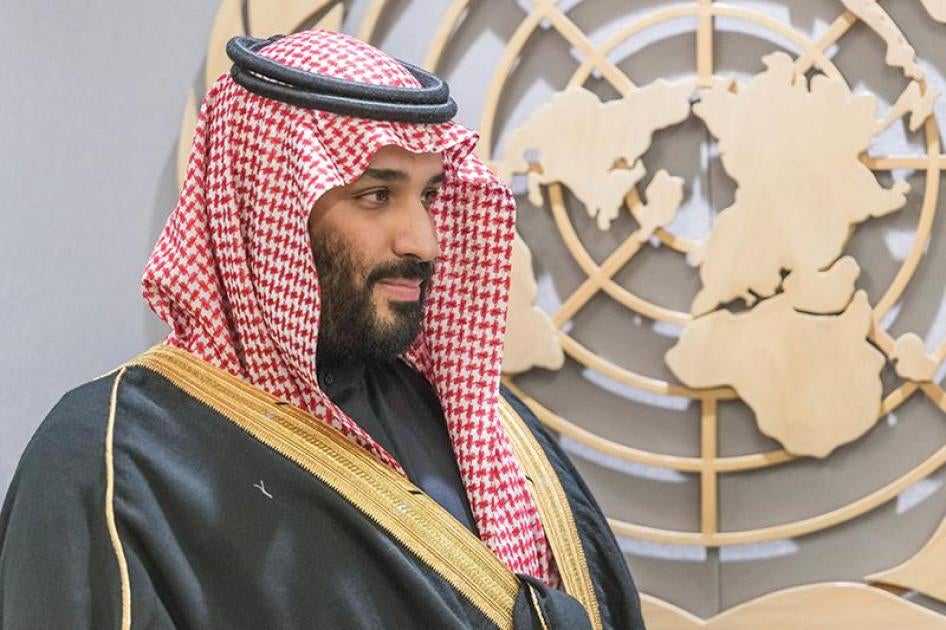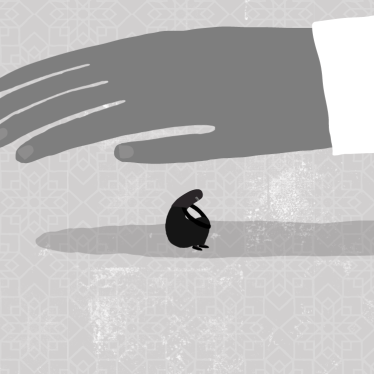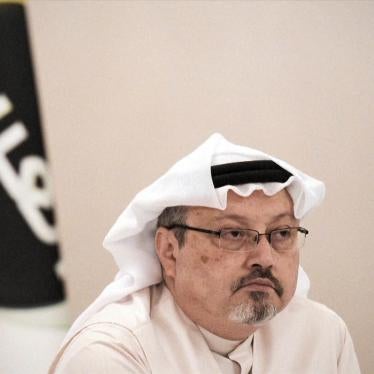(Buenos Aires) – Argentine judicial authorities have begun examining a submission concerning the role of Saudi Crown Prince Mohammed Bin Salman in connection with alleged war crimes by the Saudi-led coalition in Yemen and torture by Saudi officials, Human Rights Watch said today. The crown prince is expected to attend the G20 Summit in Buenos Aires on November 30, 2018.
On November 26, Human Rights Watch filed a submission with an Argentine federal prosecutor outlining its public findings on alleged violations of international law committed during the armed conflict in Yemen for which Mohammed bin Salman may face criminal liability as Saudi Arabia’s defense minister. The submission also highlights his possible complicity in serious allegations of torture and other ill-treatment of Saudi citizens, including the murder of the journalist Jamal Khashoggi.
“Argentine prosecutorial authorities should scrutinize Mohammed bin Salman’s role in possible war crimes committed by the Saudi-led coalition since 2015 in Yemen,” said Kenneth Roth, executive director of Human Rights Watch. “The crown prince’s attendance at the G20 Summit in Buenos Aires could make the Argentine courts an avenue of redress for victims of abuses unable to seek justice in Yemen or Saudi Arabia.”
Argentina’s constitution recognizes universal jurisdiction for war crimes and torture. This means that judicial authorities in the country are empowered to investigate and prosecute these crimes no matter where they were committed, and regardless of the nationality of the suspects or their victims. Universal jurisdiction cases are an increasingly important part of international efforts to hold those responsible for atrocities accountable, provide justice to victims who have nowhere else to turn, deter future crimes, and help ensure that countries do not become safe havens for human rights abusers, Human Rights Watch said.
Argentina’s Criminal Procedure Code provides that any person can make a submission with judicial authorities in the country if they learn about, or are affected by, the commission of a crime. If there are indications that a crime may have been committed, the matter is later allocated, through a lottery, to a federal prosecutor or judge for formal investigation. The Human Rights Watch submission was sent to a federal judge, Ariel Lijo.
Mohammed bin Salman is the crown prince of Saudi Arabia, and also serves as the country’s deputy prime minister and defense minister. He oversees all Saudi military forces and has served as the commander of the international coalition that has been carrying out a military campaign in Yemen, says the Saudi Defense Ministry website. Mohammed bin Salman and senior Saudi commanders face possible criminal liability as a matter of command responsibility because of the key role Saudi Arabia plays in coalition military operations, Human Rights Watch said.
Since March 2015, the Saudi-led coalition has carried out scores of indiscriminate and disproportionate airstrikes on civilians and civilian objects in Yemen, hitting homes, schools, hospitals, markets, and mosques. Many of these attacks – if carried out with criminal intent – indicate possible war crimes. The coalition has also imposed and maintained a naval and air blockade on Yemen that has severely restricted the flow of food, fuel, and medicine to civilians. Millions of civilians face hunger and disease.
The Saudi-led coalition’s investigations into alleged war crimes in Yemen have lacked credibility, Human Rights Watch said. In 2016, the coalition created a team to investigate, collect evidence, and produce reports and recommendations regarding “claims and accidents” during coalition operations in Yemen. Human Rights Watch research found the body has failed to meet international standards for transparency, impartiality, and independence.
The Saudi government under the authority of the crown prince has also been implicated in serious allegations of torture and other ill-treatment of Saudi citizens, Human Rights Watch said. Human Rights Watch and other groups have reported allegations that Saudi authorities tortured Saudi women activists who have been detained in Saudi Arabia since May. Various reports also tie Mohammed bin Salman to the extrajudicial execution and possible torture of Jamal Khashoggi. Human Rights Watch has called on Turkey to seek a United Nations investigation to determine the circumstances surrounding the Saudi government’s role in Khashoggi’s killing.
Over the past two decades, the national courts of an increasing number of countries have pursued cases involving grave international crimes such as war crimes, crimes against humanity, genocide, torture, enforced disappearances, and extrajudicial executions committed abroad. National experiences in various countries show that the fair and effective exercise of universal jurisdiction is achievable where there is the right combination of appropriate laws, adequate resources, institutional commitments and political will, Human Rights Watch said.
“A decision by Argentine officials to move toward investigation would be a strong signal that even powerful officials like Mohammed bin Salman are not beyond the reach of the law,” Roth said. “And Mohammed bin Salman should know that he may face a criminal probe if he ventures to Argentina.”









